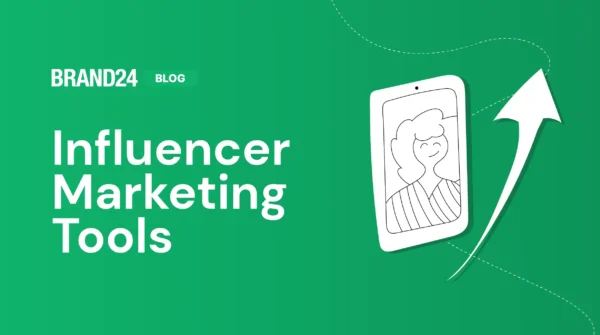Interview: Lee Odden on the Rise and Success of Influencer Marketing
1. Influencer marketing has existed for a long time. Why is it so popular right now?
I think it’s a combination of things. One, is that today’s buyers are overloaded with information and generally don’t trust brand advertising or content. They do trust peers and influencers though and brands are realizing that working with influencers opens doors to attract, engage and convert new customers.
Another challenge is that many marketing departments are stressed to produce enough content to stand out and meet demand. Collaborating with influencers helps extend the content creation capabilities of the marketing department, enabling companies to scale quality content without a huge increase in costs.
Last, is that everyone is empowered to publish content, attract an audience and become influential. The inventory of micro-influencers presents a huge opportunity for brands that can’t afford major celebrities and want to focus on engagement over exposure.
2. Would you say that influence means authority?
Influence does mean authority. But it takes more than authority to be an effective influencer. The most successful influencers possess a combination of personality, passion, popularity, persuasion and power.
3. What is the most important thing we have to remember when we’re about to launch a campaign or cooperation?
Relevance is key to any influencer program. Without clear alignment between the brand, influencer and audience, the program won’t resonate and everyone loses credibility.
4. Do you think there are industries where influencer marketing is more efficient than others? Why?
Broadly, influencer marketing is more actively used in B2C than B2B but that gap is closing. My experience is mostly in the B2B space and we’ve had amazing success in terms of effectiveness and efficiency. Because we don’t automatically assume every B2B influencer wants or needs to be compensated, we’ve been able to implement programs very efficiently with huge impact.
One project for a Fortune 500 B2B technology company included 32 influencers and achieved over 18 million impressions with over a 100% share rate amongst the participants. Few were paid but all were happy to be part of a project that gave them access to other influencers, brand experts and incredible exposure.
We are happy to pay influencers, it’s just not always necessary in B2B like it appears to be in B2C.
5. An opinion leader might have a huge influence on the audience but not on our target group. What is the best way to identify influencers for our brand?
A brand must start with a clear picture of the influence topic based on insights about the target customers. Then influencers can be researched based on topical relevance, the relevance of their audience, the engagement levels with the audience and the size of the audience.
Know your own brand and know your customers. With that knowledge you can use influencer discovery tools to find the right influencers.
6. When you think about the best influencer marketing case study you’ve seen, what comes to your mind first? Why was it so exceptional and profitable (from all aspects)?
One of my all time favorite influencer marketing case studies is this B2B Content Marketing program implemented for the Content Marketing Institute.
The overall theme was about storytelling and with CMI’s design help, we used Alice in Wonderland as a metaphor and for the creative.
The overall program involved a sequence of 4 ebooks, infographics, interviews and blog posts with over 40 influencers who contributed insights on a range of topics around content marketing to help promote the Content Marketing World conference.
Relying almost entirely on organic promotion, the results were impressive:
- 218,971 Total eBook Views
- 4,023 Total eBook PDF Downloads
- 1,040 Total Leads Captured
This B2B influencer marketing program was successful on multiple levels:
- It created exposure for speakers at the Content Marketing World conference by showcasing their expertise on the topic they would be speaking about.
- It created broad awareness of the Content Marketing World conference by engaging the top content marketers to contribute and to inspire them to share to their networks.
- It generated enough exposure to attract over 1,000 requests for more information from the project sponsor.
- The program helped introduce our agency TopRank Marketing to the most credible influencers in the content marketing industry including numerous brand executives.
- We earned multiple new clients from the project and have been engaged by CMI to run the program nearly every year for the past 7 years
Special thanks to Lee Odden for sharing his expert insights with us!
Lee Odden is the CEO of TopRank Marketing and editor of TopRank Marketing Blog. Cited for his expertise by The Economist, Forbes and the Wall Street Journal, he’s the author of the book Optimize and presents internationally on integrated content, search, social media and influencer marketing. When not at conferences, consulting, or working with his talented team, he’s likely on a beach somewhere doing absolutely nothing.
Related articles

![How to Find Influencers? 5 Game-Changing Tips [2025]](https://brand24.com/blog/app/uploads/2021/03/How-to-Find-Influencers.png)
